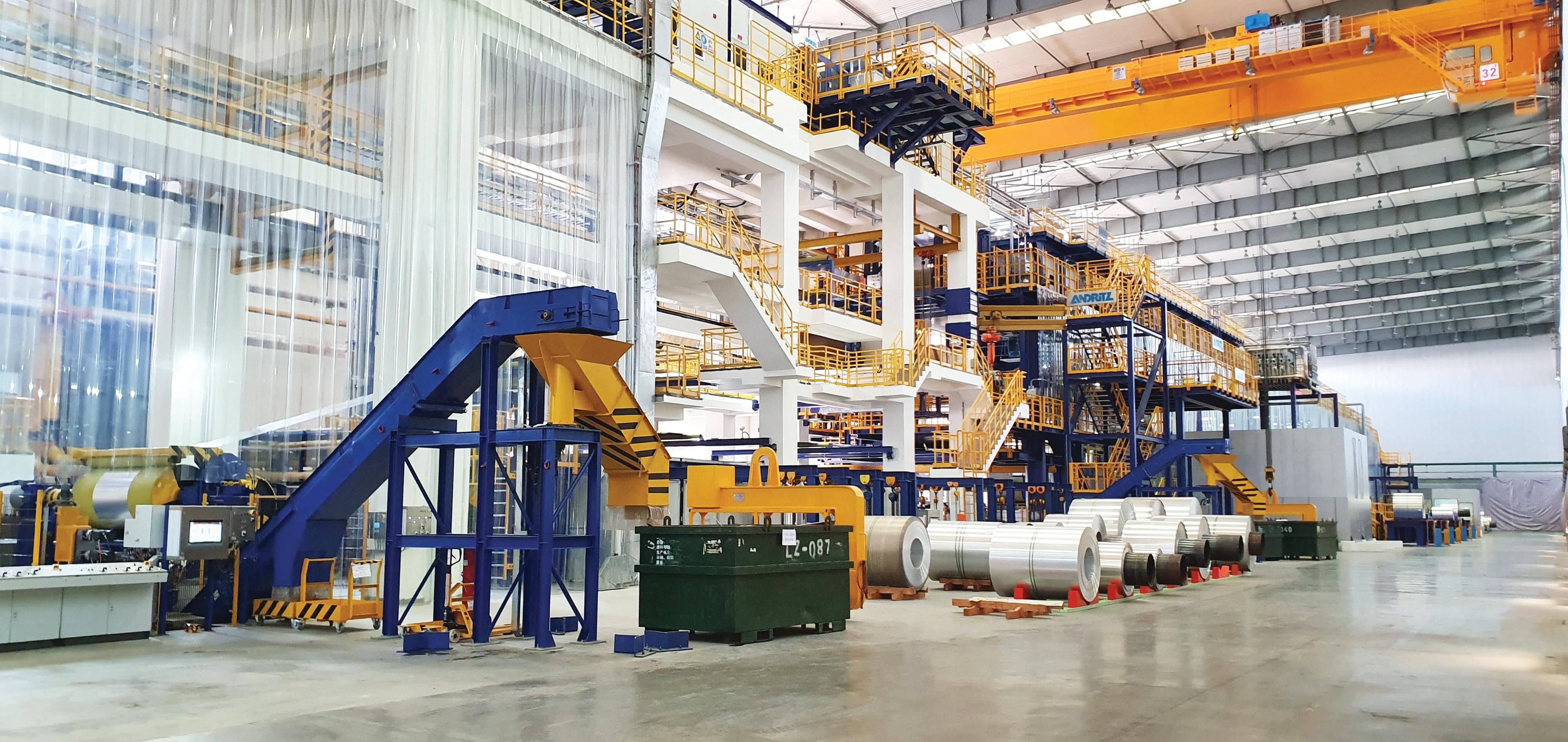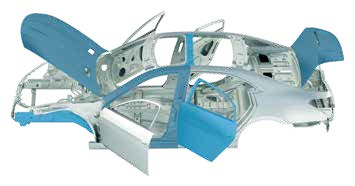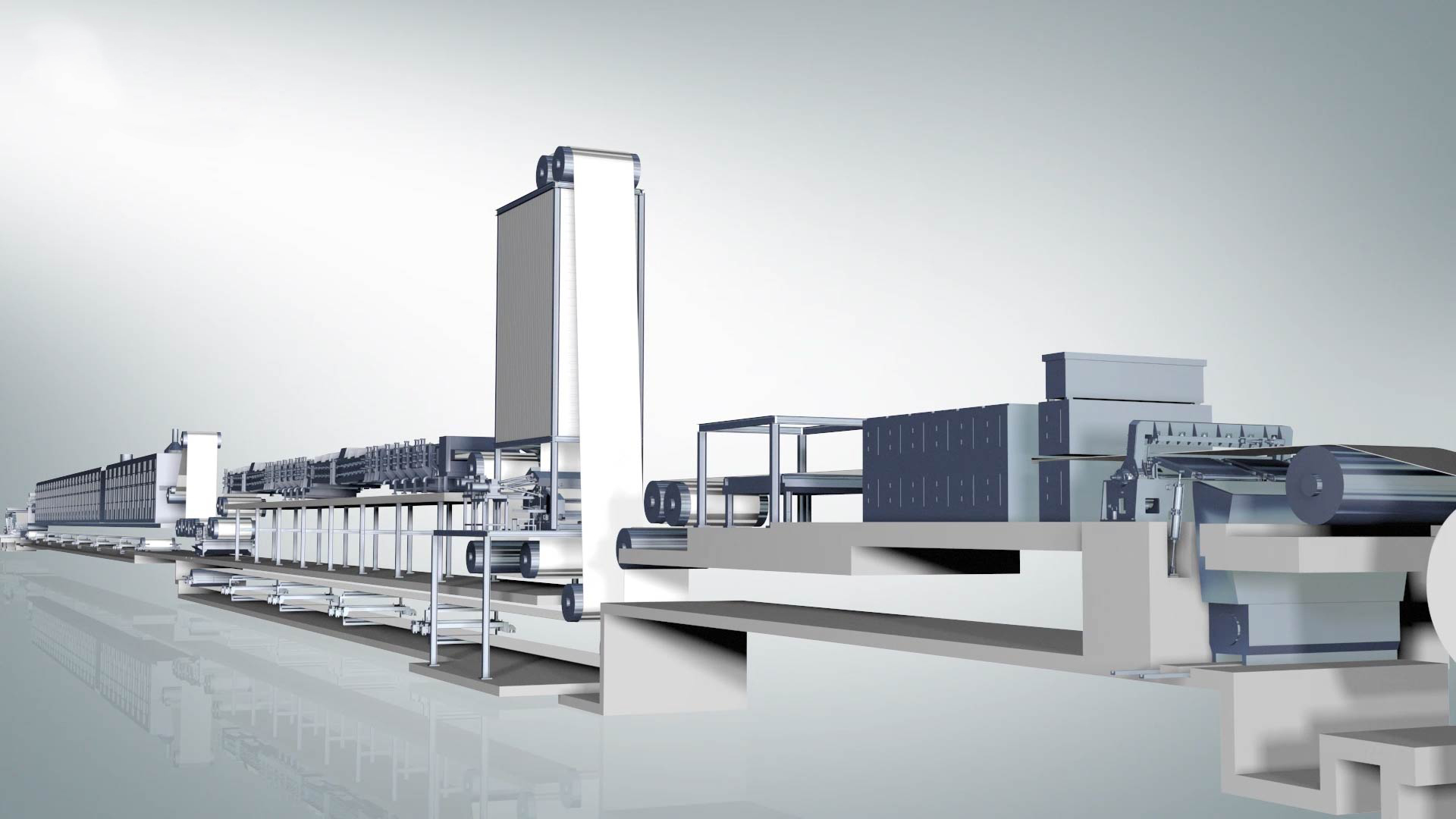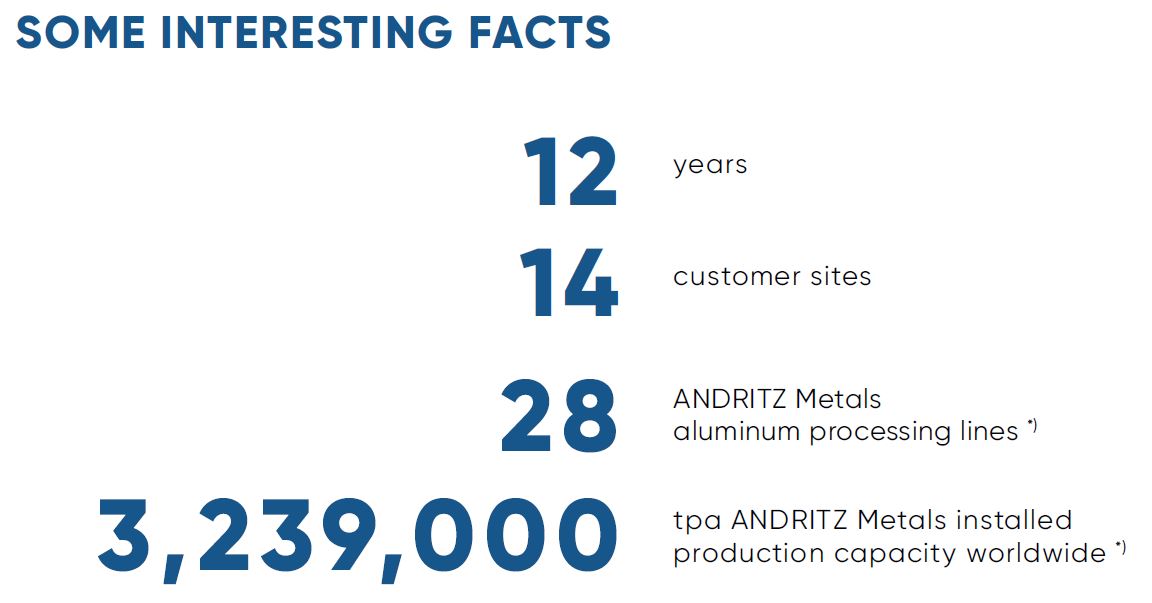The success story of aluminum processing lines started with an upgrade project at AMAG Austria Metall AG in Ranshofen a little more than 10 years back: The existing continuous annealing line BDZ3 was extended with a chemical treatment section, roll coater passivation section, and prebake furnace. Our team, quite capable of addressing such topics, had to become acquainted with the specifics of aluminum lines. Of course, the AMAG team had to take on our approach to aluminum. The project team managed to build a very good customer relationship, acquired the necessary technological know-how and worked very hard to complete the upgrade mostly during production, with only a short line stop period. It surely helped that the customer and our project team from our Linz office literally spoke exactly the same language.
COMPLETE LINES AT THE MAJOR ALUMINUM COMPANY IN THE USA
A second and notably bigger step was the agreement with the customer to supply both the continuous heat treatment line (CHTL) and the automotive treatment line (ATL) for their works in Iowa. The customer had developed a new passivation process (known and patented as “Alcoa 951”). However, this game-changing process does not allow any contamination with iron – which is where our experience with polypropylene (PP) came in more than handy: we offered all process equipment with ANDRITZ treatment tanks made of PP, which turned out to be a decisive factor for our customer. What’s more, a lot of clever details that we considered standard in stainless and carbon steel lines were unknown in the world of aluminum and supported our position as a competent and innovative supplier.
The good cooperation with the customer resulted in a follow-up order for another heat treatment line in Tennessee. This line, built with floatation furnace supplier Ebner, was until recently the line with the longest floating furnace worldwide, with a complete floating length of 132 m. Only in our recent Steel Dynamics Inc. contract is this surpassed by a few meters.
ALL-ALUMINUM F150 TO DRIVE DEMAND
The automotive industry proved to be the driver for aluminum processing lines, especially when Ford announced in 2015 that they would be producing the F150 model with a full aluminum body. In addition, Ford requested the new Alcoa 951 passivation for improved bonding performance. ANDRITZ having built the reference line, thus had a competitive advantage.
WHY IS AUTOMOTIVE SO IMPORTANT?
While ANDRITZ is also an important player in the field of AHSS and stainless steel, which help the automotive industry to build better and stronger, yet lighter cars, it is aluminum that can really make cars lighter. Although aluminum is not as strong as steel, it still allows a weight reduction of roughly 50% for certain parts. The resulting lighter cars will consume less fuel and emit less CO2. Basically, the same applies to electric vehicles (EV) – the lighter they are, the more efficient they can be.






